Migrant crisis: Syrians despair over drowned boy photo
- Published
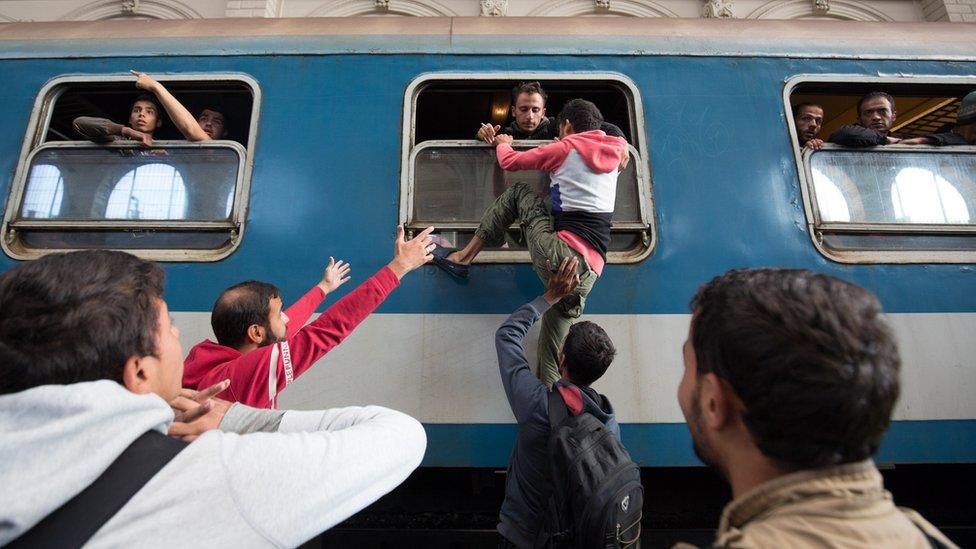
Migrants board a train in Budapest's Keleti station after it reopened this morning
There has been a stunned reaction among Syrian social media users to the photo of a Syrian child washed up on the Turkish shores.
The picture which was released by a Turkish news agency, is reported to be of three-year-old Alan, who drowned along with his five-year-old brother Galip and their mother, Rihan.
Rozana FM, a new private Syrian radio station, said it had spoken to the father, who was a hairdresser in Damascus before moving to Turkey, on Thursday.
They quoted him as saying that he repeatedly attempted to reach Greece and he had recently met two smugglers who offered to transport the family "for 4,000 euros" (£2,900, $4,500).
The father also said that his son "is a symbol of the Syrian suffering", calling on the whole world to be "merciful of Syrians".
Frustration
The now-famous picture of the drowned boy in his red shirt spread like wildfire among Syrian social media users, with many editing the image to drive home messages of anger and dismay.
Syrian cartoonist Yasser Ahmed drew an image of a shark and other sea creatures in the sea weeping at the sight of a boy's washed-up body on the shore.
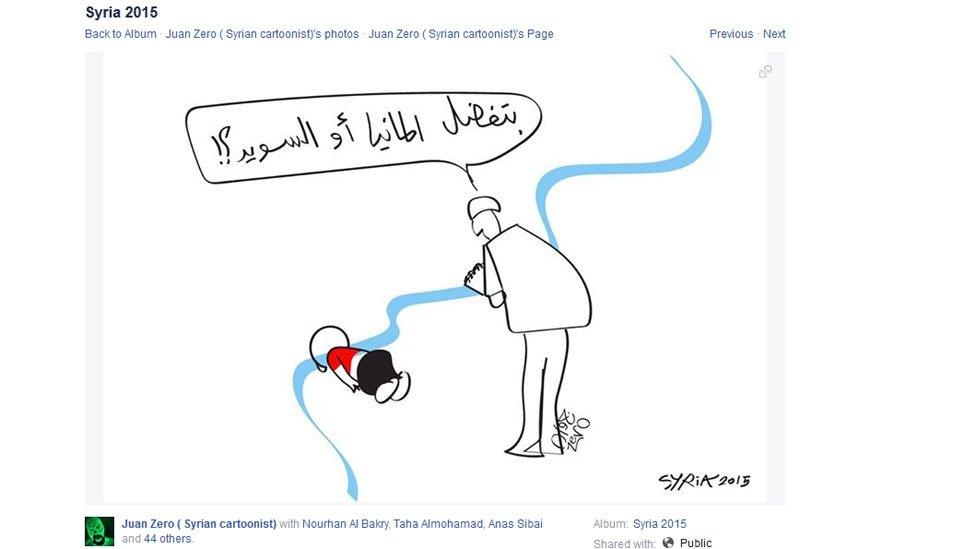
A character in Syrian artist Juan Zero's cartoon asks, "Do you prefer Germany or Sweden?"
Many voice frustration at the perceived inaction of regional countries in the face of the Syrian crisis.
Another image has Alan's body with the head of Handala, a well-known Palestinian cartoon figure, superimposed on it.
The iconic signature image of Palestinian cartoonist Naji al-Ali, Handala depicts a Palestinian refugee child with his back turned to the world, and is widely seen as a symbol of Palestinians' struggle for self-determination
In another image, the boy's body was edited onto a cloud, as if to appear sleeping. The caption reads: "Up there, it is warmer".
'Shameful treatment'
Syrian pro-government channels also used the photograph of Alan to assail what they portray as heartlessness of the wider world, especially.
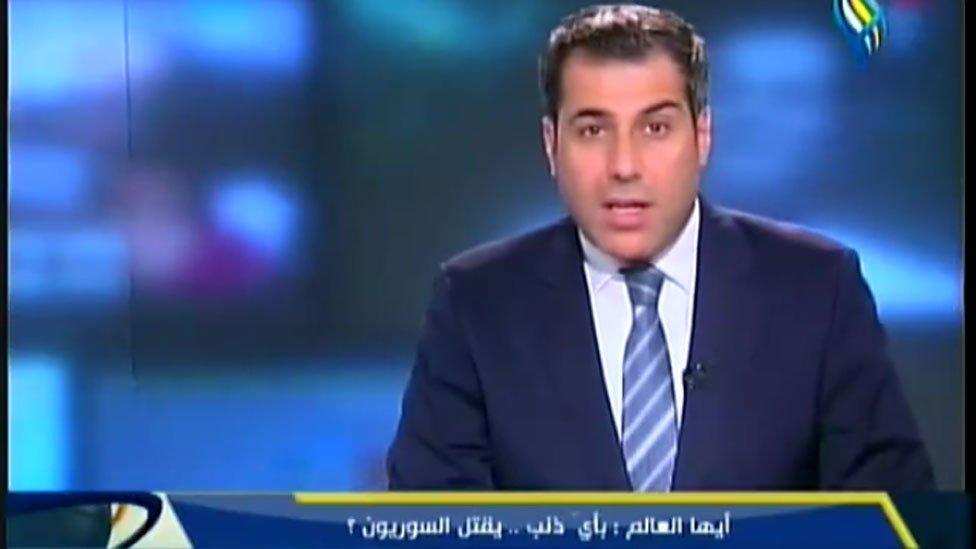
Syria's state Sama TV criticised the West over the refugee crisis
In a news bulletin on Wednesday, a Sama TV presenter said: "Oh boy, how much time it will take for humanity to understand this image".
One day prior to the image being shared, the Syrian cabinet discussed the "shameful treatment" by some European countries of Syrian refugees, state-run Syrian news agency SANA reported.
A column on the pro-government news website Champress says the dead child "should have been told the story of how Syria opened its doors in the past to all Arabs including the Lebanese, Kuwaitis, Iraqis and Palestinians".
Echoing the same sentiment, a column on the website of the pro-government Baladna daily says that many children from Gaza, Qana (Lebanon) and Iraq have left the world before the Syrian child and that this war has to stop "for the sake of the children".
Back on social media, many despairingly wonder whether expressions of outrage will result in any action to resolve the situation.
"Will the media uproar caused by the photo any real impact in changing the course of the Syrian uprisings," Thaer Al Tahli - a Syrian journalist based in Jordan - wonders, recalling the famous photos of Hamza al-Khatib, a young Syrian boy killed at the beginning of the Syrian uprising.
Another social user voices a similar feeling with an illustration, external depicting the young boy on the beach with a truck unloading a mass of Facebook "likes" onto him.
BBC Monitoring, external reports and analyses news from TV, radio, web and print media around the world. You can follow BBC Monitoring on Twitter , externaland Facebook, external.
- Published3 September 2015
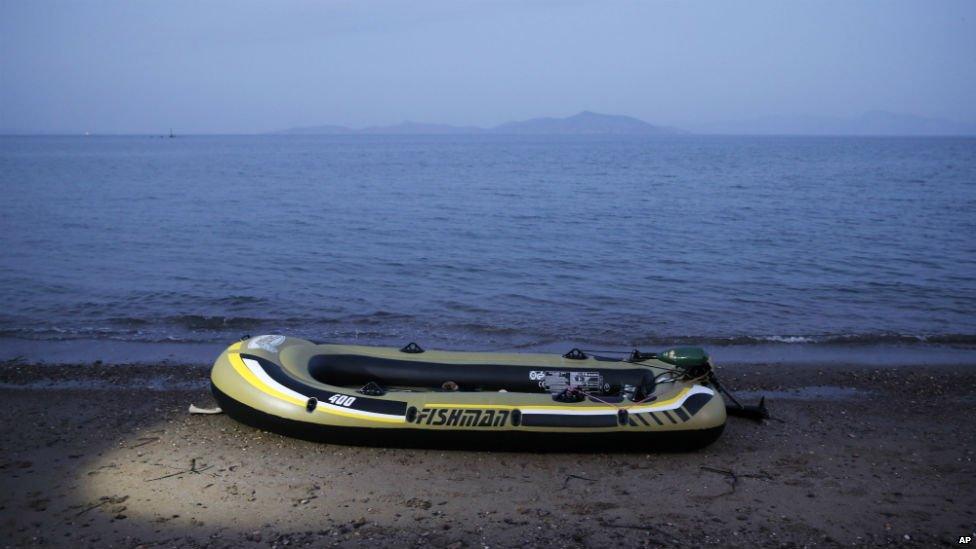
- Published4 March 2016
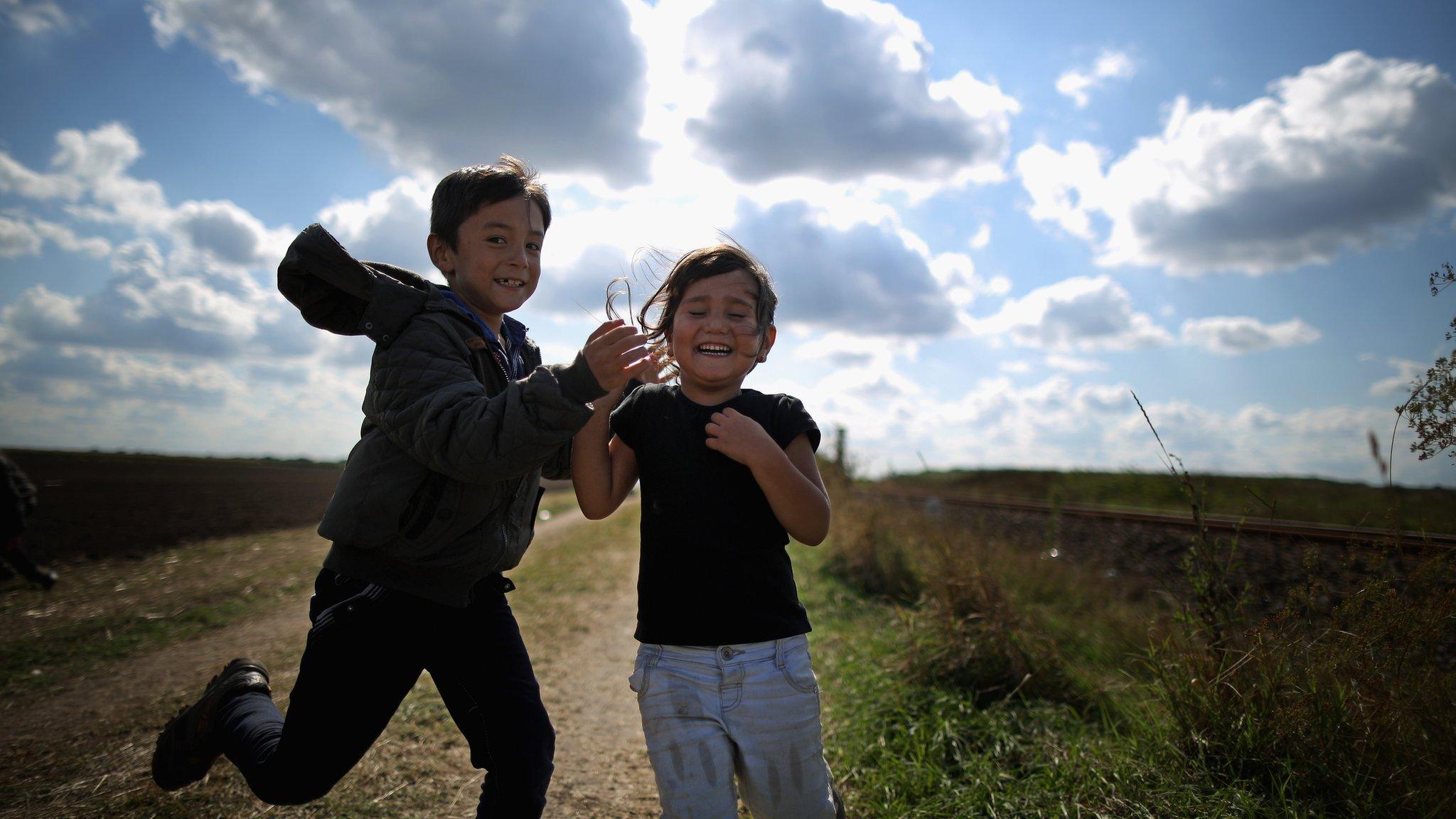
- Published2 September 2015
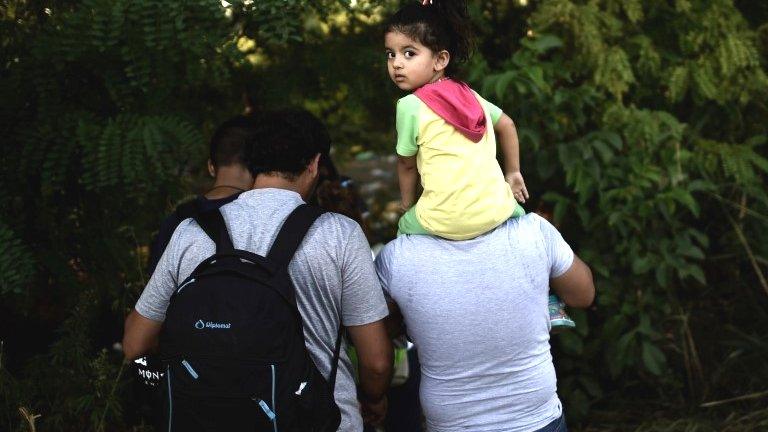
- Published2 September 2015